Some Japanese learners are misunderstanding the meaning of Japanese adjectives mainly because they try to translate them to English directly. But you need to think it separately because Japanese and English are different language. Let’s see the typical mistakes and confusion.
The opposition of 若い is not 古い
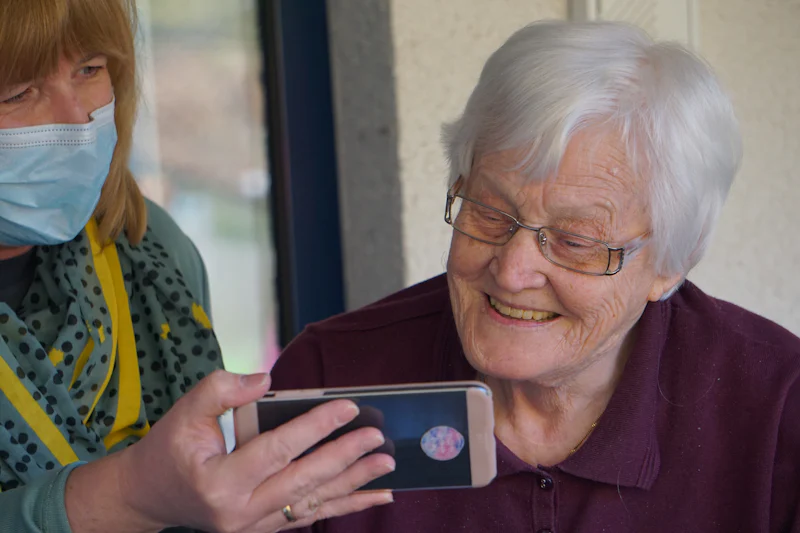
As you know, “young” would be translate to “若い(Wakai)” and “old” would be translated to “古い(Furui)” in Japanese. But actually, we don’t say like “私は古いです”.
”古い” means “old”, but it only refers to things and cannot use for human. Then, how can you express “I am old” in Japanese? Surprisingly, Japanese don’t have any adjectives that is the opposition of “若い”. In stead of adjective, we use verb or noun for that.
❌私は古いです。
↓
🟩Verb: 歳をとっています
私は歳をとっています。(watashi wa toshi wo totteimasu)
🟩Noun:年寄り
私は年寄りです。(watashi wa toshiyori desu)
This is the correct way to say “I am old” in Japanese. If you try to translate them to English, the first sentence means “I’ve got older” and the second sentence means “I am an old person”.
✏️NOTE:
Please do not use ”年寄り“ for other person, because it’s quite rude expression. When speaking to other people, you should say “お年寄りの方(Otoshi yori no kata) or “ご高齢の方(gokōrē no kata)” instead of “年寄り”.
寒い and 冷たい
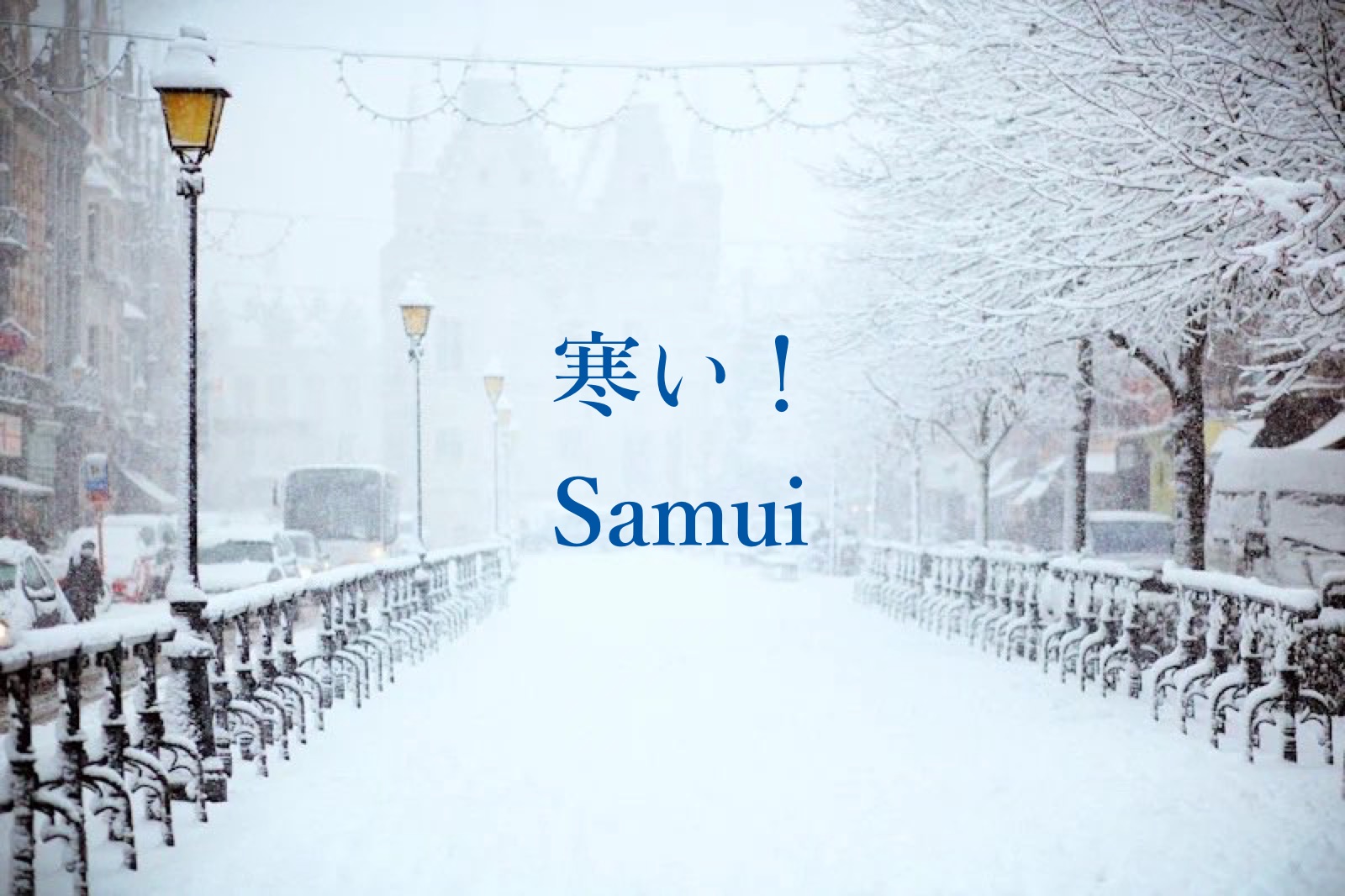
Do you know that Japanese has two vocabularies for “cold”? It’s “寒い(Samui)” and “冷たい(Tsumetai)”. Let’s see the differences.
Firstly, “寒い(Samui)” means temperature is law.
*The opposition is 暑い(Atsui).
今日は寒いですね。(kyo wa samui desune)
It’s cold today.
明日は寒い一日となるでしょう。(asu wa samui ichinichi to naru desho)
Tomorrow will be a cold day.
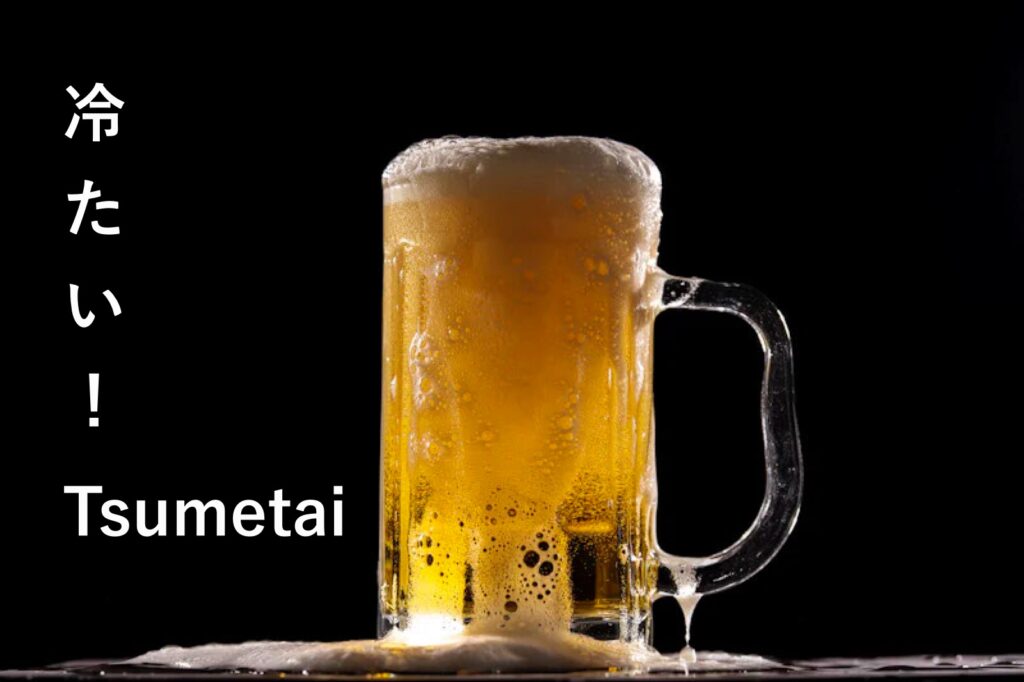
On the other hands, “冷たい(Tsumetai)” refers the cold to the touch.
*The opposition is “熱い(Atsui)”
冷たいビールが飲みたい。(tsumetai beer ga nomitai)
I want drink cold beer.
手が冷たい。(te ga tsumetai)
My hand is cold.
風が冷たい。(kaze ga tsumetai)
Wind is cold.
✏️NOTE①:
In addition, you can use 冷たい(tsumetai) when you describe person. It’s like…
私の上司は冷たい人です。(watashi no joshi wa tsumetai hito desu)
My boss is cold-hearted.
彼は最近私に冷たい。(kare wa saikin watashi ni tsumetai)
My boyfriend is cold to me recently.
✏️NOTE②:
In terms of “hot” in Japanese, you can use “Atsui” for both of temperature and hot in the touch. But be careful when you text it! Kanji for temperature is “暑い(Atsui)”, but kanji for the hot in the touch is “熱い(Atsui). The pronounce is same but kanji is different.
今日は暑いですね。(kyō wa atsui desune)
It’s hot today.
熱いお茶をください。(atsui ocha wo kudasai)
Can I get a hot tea please?

Japanese trap as usual haha
What’s 太い、細い、厚い、薄い?
太い(Futoi), 細い(Hosoi), 厚い(Atsui), 薄い(Usui). Do you know these adjectives and meanings?
If you google it, both of 太い and 厚い will be translated to “thick”. In the same way, both of 細い and 薄い will be translated to “thin”. But they are not same meanings actually.
Firstly, 太い(Futoi)and 細い(Hosoi) is used when you describe about stick shape or liner things, such us pen, rope, thread, cable, noodle, tree, and road. And it also be used about body shape.
太いロープが必要です。(futoi rope ga hituyō desu)
I need thick rope.
あの猫は太っています。(ano neko wa futotte imasu)
That cat is fat.
細い麺のほうが好きです。(hosoi men no hō ga sukidesu)
I prefer thin noodles.
彼女の指は細いです。(kanojo no yubi wa hosoi desu)
Her fingers are slender.
この道は細いです。(kono michi wa hosoi desu)
This road is narrow.
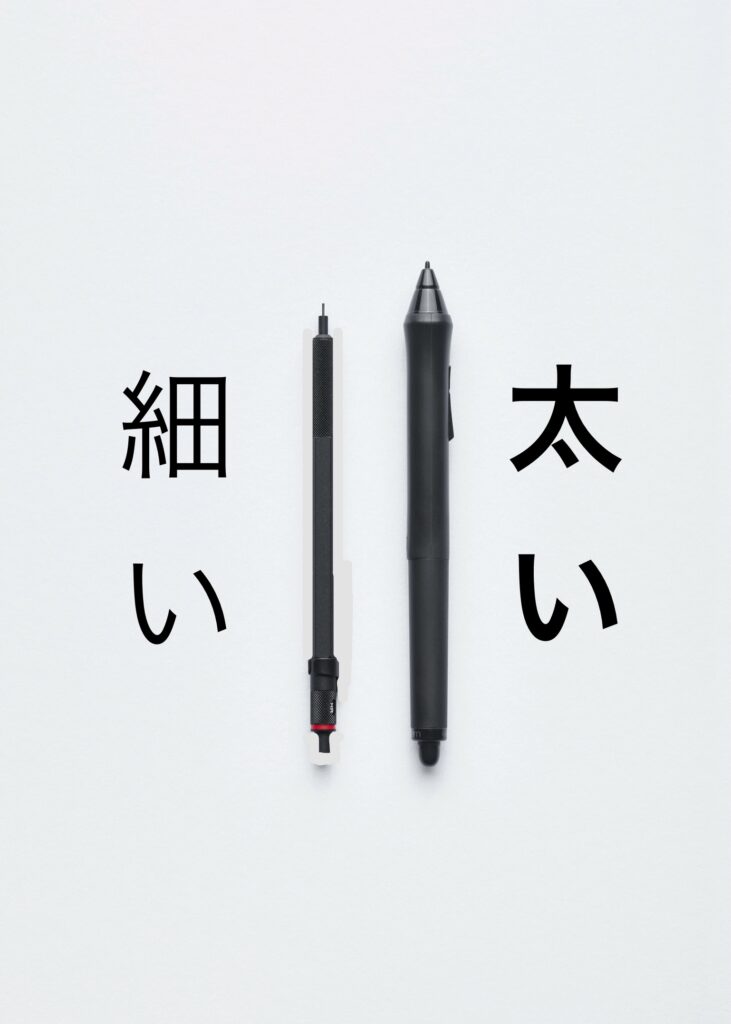
On the other hand, 厚い(Atsui) and 薄い(Usui) would be used for planer things, such us paper, book, clothe, clouds, and wall.
厚い本を買いました。(atsui hon wo kaimashita)
I bought a thick book.
厚い絨毯が敷いてあります。(atsui jūtan ga hīte arimasu)
It is laid a thick carpet.
この家の壁は薄いです。(kono ie no kabe wa usui desu)
The walls in this house are thin.
薄いシャツを着ます。(usui shatsu wo kimasu)
I wear a thin shirts.
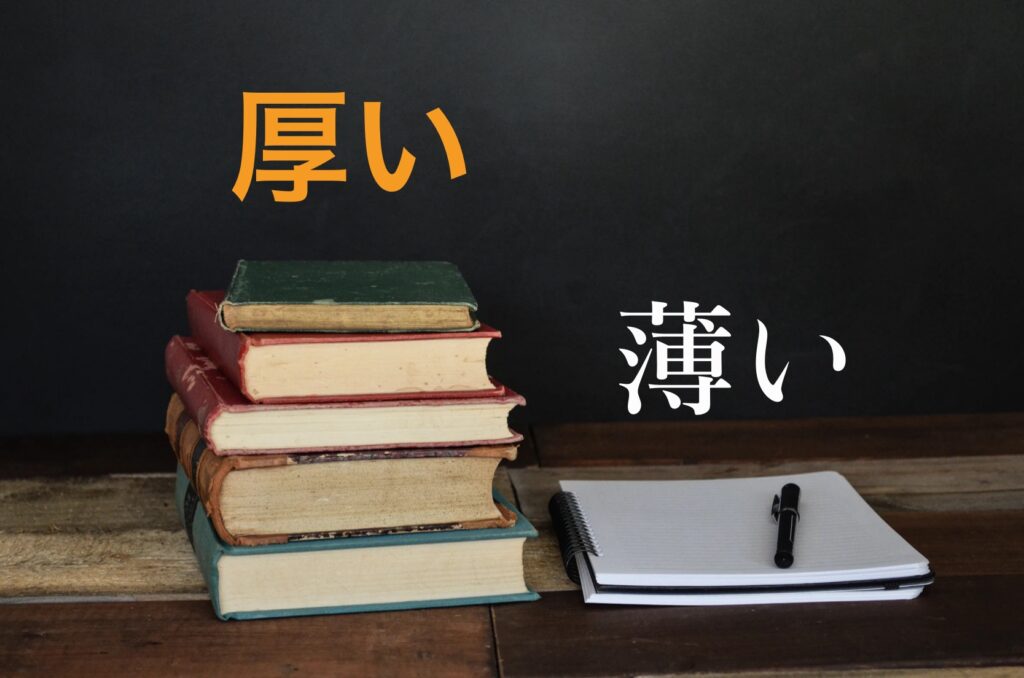

That’s all today!
Did you understand the differences of them??


コメント